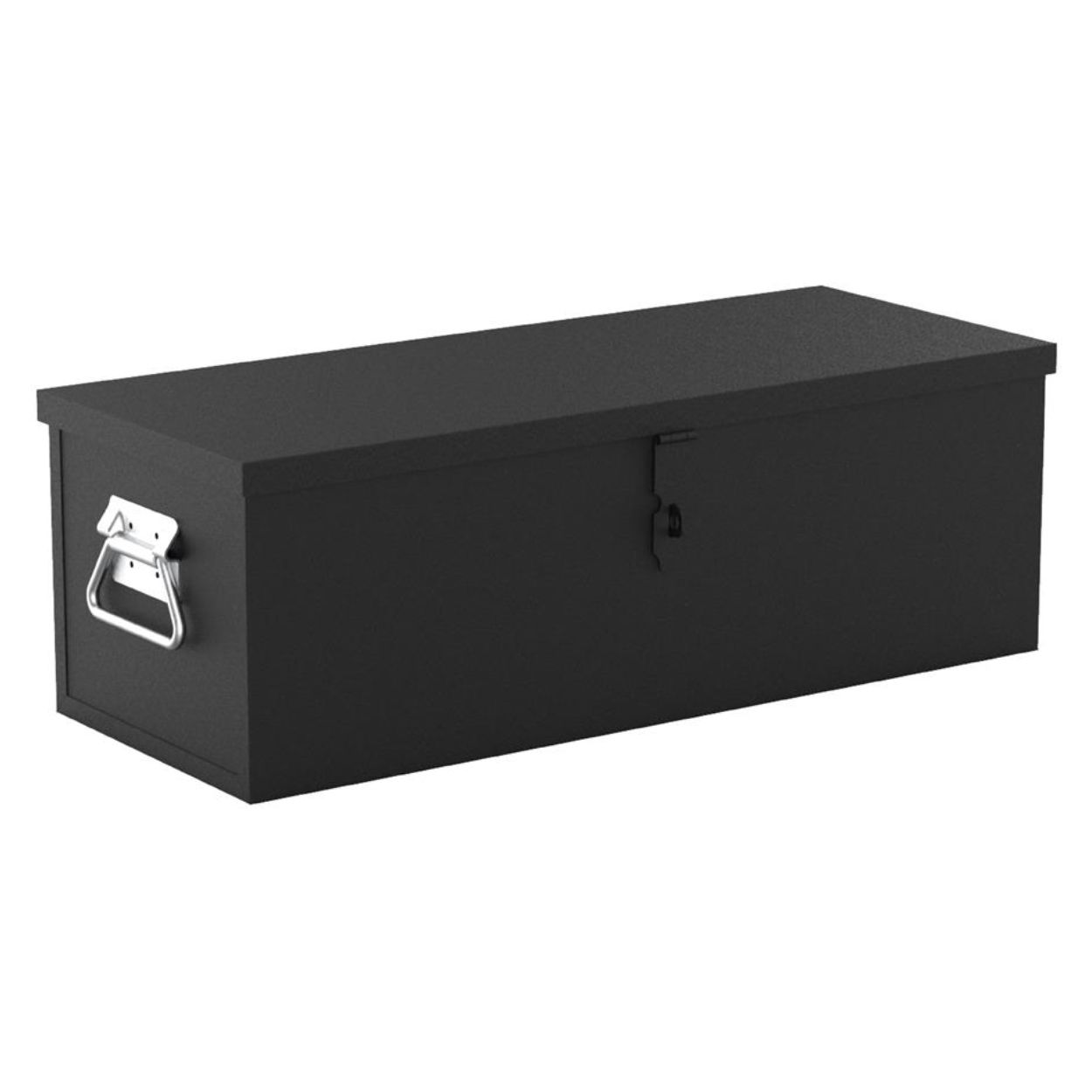
- +86 180 5858 6702
- [email protected]
- Yongjiang Industrial Park, Ningbo, Zhejiang
A tool box is more than just a container; it’s an essential element for anyone who works with tools, from the professional contractor to the weekend DIYer. This article will delve into the world of tool boxes, exploring the various types of tool boxes available, their specific uses, and the factors to consider when choosing the right one for your needs. As a leading tool box manufacturing plant, we understand the importance of proper tool storage, and we’re here to guide you through the options, helping you make an informed decision that will enhance your efficiency and protect your valuable tools. Whether you need a portable tool box for on-the-go jobs or a tool chest for your workshop, we have the expertise to help you find the perfect storage solution.
A tool box is a storage solution specifically designed to organize, store, and transport tools. It’s a fundamental item for anyone who uses tools regularly, from professional tradespeople to home DIY enthusiasts. The primary purpose of a tool box is to keep your tools organized, easily accessible, and protected from damage. As a tool box manufacturing plant, we understand that a good tool box is an investment that can significantly improve efficiency and prolong the life of your tools.
Proper tool storage is essential for several reasons. First, it helps you quickly locate the right tool for the job, saving valuable time and reducing frustration. Second, it protects your tools from damage caused by moisture, dust, and impact. Third, a well-organized tool box promotes safety by preventing accidents caused by loose or misplaced tools. Whether you’re a professional mechanic, a construction worker, or a home hobbyist, a tool box is an indispensable asset that enhances your workflow. Using an organized tool storage system will help you keep tools organized and easily accessible.
Tool boxes come in a wide variety of shapes, sizes, and materials, each designed to meet specific needs. Some common tool box types include the hand-carry tool box, portable tool box, rolling tool chest, stationary tool chest, truck tool box, and pit box. The type of tool box you choose depends on factors such as the size of your tool collection, the type of tool you use most frequently, and whether you need to move their tools around.
Tool boxes are designed for different tools and equipment. Hand-carry tool boxes are typically small and lightweight, making them ideal for transporting a limited number of tools to different job sites. You might want to look into our portable toolboxes. Portable tool boxes often feature a handle and may include a shoulder strap for easy carrying. Rolling tool chests, on the other hand, are larger and feature wheels and a handle for easy maneuverability. They are an excellent choice for those who need to move a large tool collection around a workshop or garage. Here is a table showcasing different types of tool boxes:
| Type of Tool Box | Description | Common Uses | Advantages |
|---|---|---|---|
| Hand-Carry Tool Box | Small, lightweight box with a handle for easy carrying. | DIY projects, small repair jobs, home maintenance | Portable, affordable, easy to store |
| Portable Tool Box | Larger than hand-carry, often with a shoulder strap or wheels. | Transporting tools to job sites, mobile repairs | More storage than hand-carry, still relatively portable |
| Rolling Tool Chest | Large chest with drawers and wheels for mobility. | Workshops, garages, mechanics | Large storage capacity, easy to move around, organized drawers |
| Stationary Tool Chest | Large chest with drawers, designed to stay in one place. | Workshops, garages, industrial settings | Maximum storage capacity, very durable, can be combined with a workbench |
| Truck Tool Box | Designed to mount on the bed of a pickup truck. | Construction workers, contractors, anyone who needs to transport tools in a truck | Secure storage, weather-resistant, maximizes truck bed space |
| Pit Box | Large, heavy-duty box with multiple compartments and wheels, used in motorsports. | Racing teams, mechanics in pit areas | Highly specialized for racing environments, durable, large capacity |
| Side Mount Tool Box | Attaches to the side of a truck bed. | Construction workers, contractors, tradespeople | Easy access to tools without climbing into the truck bed, saves space in the truck bed |
| Underbody Tool Box | Mounts underneath the vehicle, typically on trucks or trailers. | Truck drivers, contractors, utility workers | Secure storage, weather-resistant, out-of-the-way storage |
| Chest and Cabinet Combo | Combination of a top chest with drawers and a bottom cabinet with doors or drawers, often on wheels. | Workshops, garages, mechanics, hobbyists | Versatile storage, combines drawer organization with larger compartment space, often mobile |
| Modular Tool Storage System | Stackable units that can be combined in various configurations. | Workshops, garages, anyone who needs a customizable storage solution | Highly customizable, expandable, can be adapted to changing needs |
| Top Chest | Sits on top of a rolling cabinet or workbench, features multiple drawers. | Workshops, garages, mechanics | Additional drawer storage, keeps frequently used tools within easy reach, can be used independently |
| Intermediate Chest | Placed between a top chest and a rolling cabinet. | Workshops, garages, mechanics | Adds drawer storage, bridges the gap between top chest and rolling cabinet, maximizes vertical space |
| Side Cabinet | Attaches to the side of a rolling cabinet or chest. | Workshops, garages, mechanics | Increases storage capacity without taking up more floor space, customizable |
| Workstation | Combination of a workbench and tool storage, often with drawers, cabinets, and a pegboard. | Workshops, garages, hobbyists, DIYers | Integrates workspace and storage, keeps tools organized and within reach, versatile |
| Backpack Tool Bag | Backpack designed to carry tools, often with multiple pockets and compartments. | Electricians, HVAC technicians, anyone who needs to carry tools while keeping hands free | Hands-free portability, comfortable to carry, good for climbing ladders or working in tight spaces |
| Wheeled Tool Bag | Tool bag with wheels and a telescoping handle. | Contractors, technicians, anyone who needs to transport heavy tools | Combines portability of a bag with the convenience of wheels, large storage capacity |
| Open Tote Tool Bag | Bag with an open top for easy access to tools. | Electricians, plumbers, carpenters | Quick access to tools, easy to see contents, lightweight |
| Bucket Organizer | Fits around a standard 5-gallon bucket, features multiple pockets for tool storage. | Construction workers, gardeners, DIYers | Inexpensive, portable, utilizes readily available buckets |
| Tool Belt | Belt worn around the waist with pouches and loops for holding tools. | Carpenters, electricians, construction workers | Keeps essential tools within easy reach, frees up hands, good for working on ladders or in confined spaces |
| Tool Vest | Vest with multiple pockets for carrying tools. | Electricians, technicians, stagehands | Distributes weight evenly, more comfortable than a tool belt for some, hands-free tool access |
| Tool Roll | Made of fabric or leather with slots for individual tools, rolls up for compact storage. | Mechanics, machinists, hobbyists | Protects tools, keeps them organized, compact storage, easy to transport |
| Socket Organizer | Tray or rail designed to hold sockets, often with magnetic or twist-lock mechanisms. | Mechanics, technicians | Keeps sockets organized by size, prevents them from rolling around, easy to find the right socket |
| Wrench Organizer | Rack or holder designed to store wrenches, often by size. | Mechanics, technicians, DIYers | Keeps wrenches organized and easily accessible, can be mounted on a wall or placed in a drawer |
| Screwdriver Organizer | Rack or holder designed to store screwdrivers, often with different sized slots. | Electricians, technicians, DIYers | Keeps screwdrivers organized and easily accessible, can be mounted on a wall or placed in a drawer |
| Pliers Organizer | Rack or holder designed to store pliers, often with slots or pegs. | Electricians, mechanics, technicians | Keeps pliers organized and accessible, prevents damage to cutting edges |
| Power Tool Organizer | Rack or shelf designed to hold power tools, often with charging stations. | Woodworkers, contractors, DIYers | Keeps power tools organized and charged, frees up workbench space |
| Small Parts Organizer | Container with multiple small compartments, often with a clear lid. | Electricians, hobbyists, anyone who works with small parts | Keeps small parts separated and organized, easy to see contents, portable |
A portable tool box is designed for mobility, allowing you to easily transport your tools to different locations. These tool boxes are typically smaller in size and feature a handle or wheels for easy carrying. We have great options for rolling tool cart. They are ideal for contractors, technicians, and anyone who needs to frequently move their tools between job sites or different areas of a workshop. A portable tool box might be made from plastic, metal, or a combination of materials.
On the other hand, a stationary tool chest is designed to remain in one place, such as a garage or workshop. These chests are usually larger and heavier than portable tool boxes, offering greater storage capacity. They often feature multiple drawer and compartments for organizing a large tool collection. A stationary tool chest might be part of a larger tool storage system that includes a tool cabinet or tool storage workbench with drawers. Check out our tool storage options as well. While they are not designed for frequent transportation, some stationary tool chests may have wheels for occasional repositioning within a workspace. This toolbox typically has many drawer for tools and equipment.
A rolling tool chest is a versatile tool storage solution that combines the storage capacity of a stationary tool chest with the mobility of a portable tool box. These chests feature heavy-duty casters that allow you to easily move your tool collection around your workspace. Rolling tool chests typically have multiple drawer of varying depths, providing ample space for organizing different types of tool. You might want to consider our tool cabinet chests.
One of the key features of a rolling tool chest is its locking mechanism, which secures the drawer and prevents them from opening during transport. This ensures that your tools remain safely stored and organized, even when moving the chest over uneven surfaces. Many rolling tool chests also feature a top compartment with a lid, which can be used as a work surface or for storing frequently used items. Our workbenches also offer a great work surface. As a tool box manufacturer, we offer a range of rolling tool chests with various features, including drawer liners, power strips, and customizable drawer configurations.
Buying your tool box is an important decision that can impact your efficiency and the safety of your tools. Several factors to consider when choosing a tool box include the size and weight of your tool collection, the type of tool you use most often, your budget, and the available space in your work area or vehicle.
First, assess the size of your tool collection and the types of tool boxes you need to store. If you have a large collection of hand tools, power tools, and accessories, you may need a larger tool chest or a combination of a tool chest and cabinet. If you primarily use small tools and need portability, a hand-carry tool box or portable tool box might suffice.
Next, consider the material and construction of the tool box. Steel tool boxes are known for their durability and security, while plastic tool boxes are lightweight and resistant to rust and corrosion. You might also consider stainless steel tool boxes for their durability and aesthetic appeal.
Another important factor is the organization features of the tool box. Look for drawer liners, dividers, and compartments that will help you keep your tools organized and easily accessible. If you need to transport your tool box frequently, consider a model with wheels and a sturdy handle.
Finally, set a budget and compare prices from different tool box manufacturers. Keep in mind that investing in quality tool boxes can save you money in the long run by protecting your tools and improving your efficiency.
| Consideration | Description | Importance |
|---|---|---|
| Size of Tool Collection | The number and size of tools you need to store | Determines the overall capacity needed in a tool box |
| Types of Tools | The specific types of tools you use (hand tools, power tools, etc.) | Influences the type of storage required (drawers, compartments, etc.) |
| Portability Needs | How often you need to move your tools | Dictates whether a portable, rolling, or stationary tool box is best |
| Work Environment | Where the tool box will be used (garage, workshop, job site, etc.) | Affects the durability and material requirements (e.g., weather resistance) |
| Security | The need to secure tools from theft or unauthorized use | Determines if locking mechanisms are necessary |
| Organization | The need for organized tool storage and easy access | Influences the choice of drawers, dividers, and other organization features |
| Durability | The need for a long-lasting tool box | Affects the choice of material (steel, plastic, etc.) and construction quality |
| Budget | How much you are willing to spend on a tool box | Determines the range of options available |
| Brand and Manufacturer | The reputation and quality of the tool box brand | Impacts the reliability, warranty, and customer support |
| Aesthetics | The look and style of the tool box | May be important for personal preference or professional image |
| Ergonomics | The ease of use and comfort when handling the tool box | Important for frequent use, especially with heavy loads |
| Expandability | The ability to add more storage or accessories in the future | Useful for growing tool collections or changing needs |
| Weight of Tool Box | How heavy the tool box is, especially when fully loaded | Impacts portability and ease of transport |
| Material | The material the tool box is made from (steel, aluminum, plastic, etc.) | Affects durability, weight, resistance to rust and corrosion |
| Lid Type | The type of lid or cover (hinged, removable, etc.) | Influences ease of access and security |
| Handle Type | The type of handle (fixed, telescoping, etc.) | Affects portability and comfort when carrying or moving the tool box |
| Wheel Type | The type of wheels, if applicable (casters, fixed wheels, etc.) | Impacts mobility and stability on different surfaces |
| Lock Type | The type of locking mechanism, if applicable (padlock hasp, integrated lock, etc.) | Determines the level of security |
| Special Features | Any additional features such as power strips, lighting, or weatherproofing | May add convenience or functionality |
Truck tool boxes and pit boxes are specialized types of tool boxes designed to meet the unique needs of specific users. A truck tool box is designed to mount on the bed of a pickup truck, providing secure and weather-resistant storage for tools and equipment. These tool boxes are usually made of aluminum or steel and feature a locking lid to protect the contents from theft and the elements. Truck tool boxes are usually mounted behind the cab, either sitting on the bed rails or flush with them.
Truck tool boxes are ideal for contractors, construction workers, and anyone who needs to transport their tools and equipment in their truck. They come in various sizes and configurations, including crossover boxes, side-mount boxes, and underbody boxes. Choosing the right tool box for your truck depends on factors such as the size of your truck bed, the amount of tool storage you need, and how you use your truck.
A pit box is another specialized type of tool box commonly used in the motorsports industry. These large, heavy-duty tool boxes are designed to store and transport the tools and equipment needed by racing teams in the pit area. Pit box typically feature multiple drawer, compartments, and work surfaces, providing a comprehensive tool storage and workstation for mechanics and technicians.
Steel tool boxes offer several advantages over other materials, making them a popular choice among professionals and serious DIYers. One of the primary benefits of steel tool boxes is their durability. Steel is a strong and resilient material that can withstand heavy use and resist impacts, making it ideal for protecting valuable tools.
Another advantage of steel tool boxes is their security. Steel is much more difficult to cut or break into than plastic or aluminum, providing an added layer of protection against theft. Many steel tool boxes also feature robust locking mechanisms that further enhance security. Our mobile tool chest is an excellent example of this.
Steel tool boxes are also known for their longevity. With proper care, a high-quality steel tool box can last for many years, even in demanding environments. While steel tool boxes may be heavier than those made from other materials, many models feature wheels and handles for easy maneuverability.
A modular tool box system is a versatile tool storage solution that allows you to customize your tool storage setup based on your specific needs. These systems typically consist of individual tool boxes, drawer, and cabinet that can be stacked or connected in various configurations. This allows you to create a tool storage system that fits your available space and the size of your tool collection.
One of the main advantages of a modular tool box system is its flexibility. You can start with a basic setup, such as a rolling tool chest and a few stackable tool boxes, and add more units as your tool collection grows. This makes it an excellent choice for those who anticipate expanding their tool collection over time.
Another benefit of modular tool systems is their portability. While individual units may be heavy, they are generally easier to move than a large, one-piece tool chest. This makes them a good option for those who need to transport their tools between different job sites or rearrange their workspace frequently. Check out our garage storage cabinets for modular options.
Tool box accessories can significantly enhance the functionality and organization of your tool box. Some common tool box accessories include drawer liners, dividers, socket organizers, tool racks, and power strips.
Drawer liners are a simple yet effective accessory that helps protect both your tools and the drawer from scratches and damage. They also provide a non-slip surface that keeps tools from sliding around when the drawer is opened or closed.
Dividers and organizers help you further customize the interior of your tool box drawers, allowing you to create separate compartments for different types of tool or accessories. Socket organizers, for example, are designed to hold individual sockets in place, making it easy to find the size you need.
Tool racks and holders can be mounted inside the tool box or on the exterior, providing additional storage for frequently used tools like wrenches, screwdrivers, or pliers. Power strips with multiple outlets can be added to your tool box or tool storage workbench with drawers, allowing you to charge power tools or plug in work lights directly from your tool storage area.
Choosing the right tool box manufacturer is crucial for ensuring that you get a high-quality, reliable product that meets your needs. As a leading tool box manufacturing plant, we pride ourselves on producing durable and well-designed tool storage solutions that cater to a wide range of customers, from home improvement retailers to industrial and commercial distributors.
When selecting a tool box manufacturer, consider factors such as their experience, reputation, and the materials they use. A reputable manufacturer will have a proven track record of producing quality tool boxes that stand the test of time. They should also use high-quality materials and employ rigorous quality control measures throughout the manufacturing process.
Another important factor to consider is the manufacturer’s warranty and customer service. A good manufacturer will stand behind their products with a comprehensive warranty and offer excellent customer support to address any issues that may arise.
By partnering with a trusted tool box manufacturer like us, you can be confident that you’re investing in a tool storage solution that will enhance your efficiency, protect your tools, and provide long-lasting value. We offer a variety of customization options, allowing you to create the perfect tool storage system for your specific requirements.
What is the most common type of tool box?
The most common tool box type is the hand-carry tool box, which is a small, portable tool box with a handle for easy carrying. These tool boxes are ideal for storing and transporting a limited number of hand tools for DIY projects or small repair jobs.
What is the difference between a tool box and a tool chest?
A tool box is typically a smaller, portable container designed for carrying tools, while a tool chest is a larger, stationary storage unit with multiple drawer for organizing a more comprehensive tool collection. A tool chest may also refer to the top portion of a combination of a tool chest and rolling cabinet.
How do I choose the right size tool box?
Choosing the right size tool box depends on the size of your tool collection and the type of tool you use most frequently. Consider the number and size of the tools you need to store, and choose a tool box that offers ample space while still being manageable for your workspace or transportation needs.
What is the best material for a tool box?
The best material for a tool box depends on your specific needs and priorities. Steel tool boxes are known for their durability and security, while plastic tool boxes are lightweight and resistant to rust. Aluminum tool boxes offer a good balance of strength, weight, and corrosion resistance.
How do I organize my tools in a tool box?
To organize your tools in a tool box, start by sorting them by type and frequency of use. Use drawer liners, dividers, and organizers to create separate compartments for different types of tool. Keep frequently used tools within easy reach, and store less common items in less accessible areas. Consider labeling drawer or compartments for quick identification.
Can I customize my tool box?
Yes, many tool boxes offer customization options, such as adjustable drawer dividers, removable trays, and the ability to add accessories like tool racks or power strips. Modular tool storage systems provide even greater flexibility, allowing you to combine different units to create a personalized tool storage solution.
As a leading tool box manufacturing plant, we understand the importance of having the right tool storage solution for your needs. Whether you’re a professional tradesperson, a serious DIYer, or somewhere in between, investing in a quality tool box is essential for keeping your tools organized and easily accessible, protected, and in good working order.
Our extensive range of tool boxes, chests, cabinet, and accessories caters to a wide variety of requirements and preferences. We are committed to providing our customers with durable, well-designed, and customizable tool storage options that enhance their productivity and help them achieve their goals.
If you’re in the market for a new tool chest, cabinet, or any other type of tool box, we invite you to explore our product offerings and discover the difference that a high-quality tool storage system can make. Our knowledgeable team is always ready to assist you in finding the perfect tool box for your specific needs and budget.
Don’t let a disorganized or inadequate tool storage system hold you back any longer. Contact us today to learn more about our products and how we can help you take your tool organization and efficiency to the next level. Your ideal tool box solution is just a click or call away!
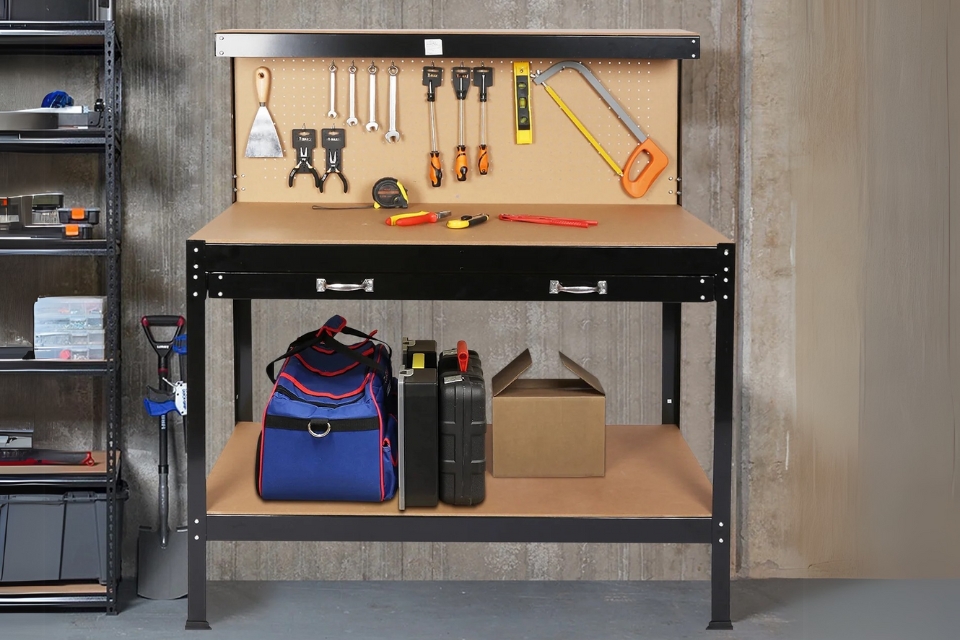
This article delves into the differences between workbenches and workstations, focusing on their applications within various industrial settings.
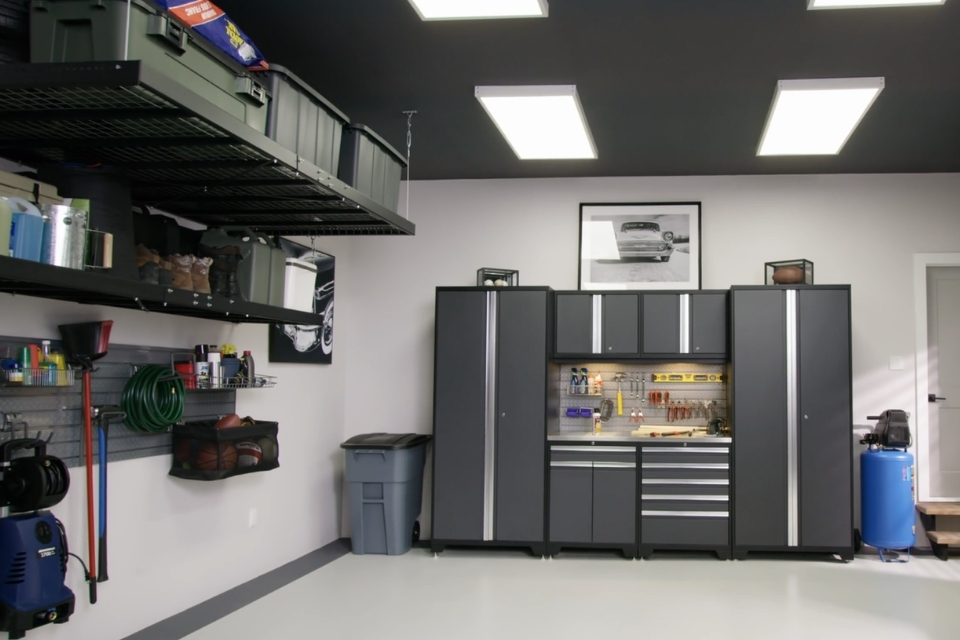
This article delves into the crucial question of whether garage cabinets need backs, exploring the structural and functional implications of this design choice.
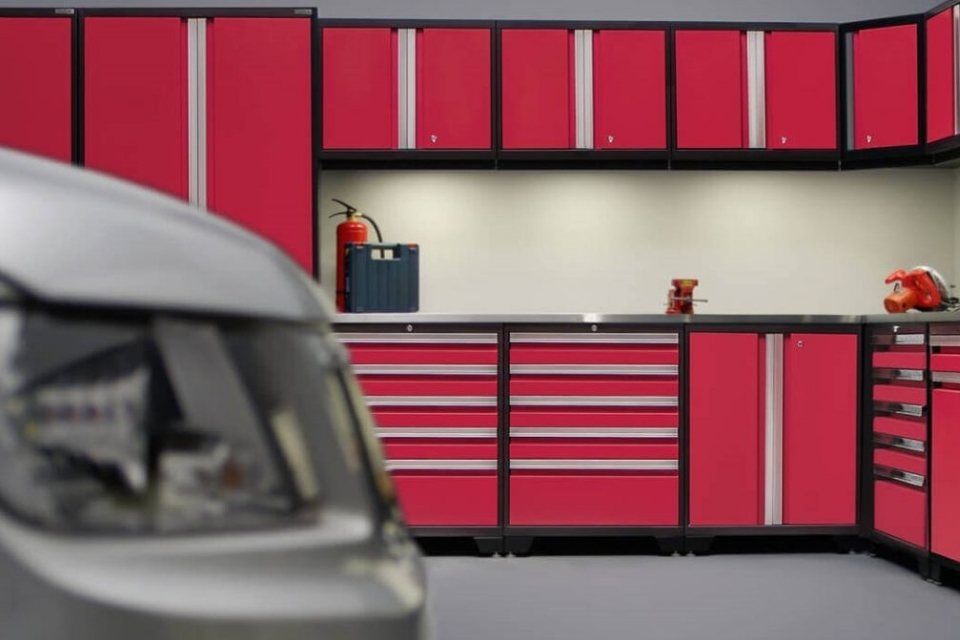
This article provides a comprehensive guide to designing an effective garage storage system, offering practical tips and innovative garage storage ideas to transform your cluttered garage into an organized and functional space.
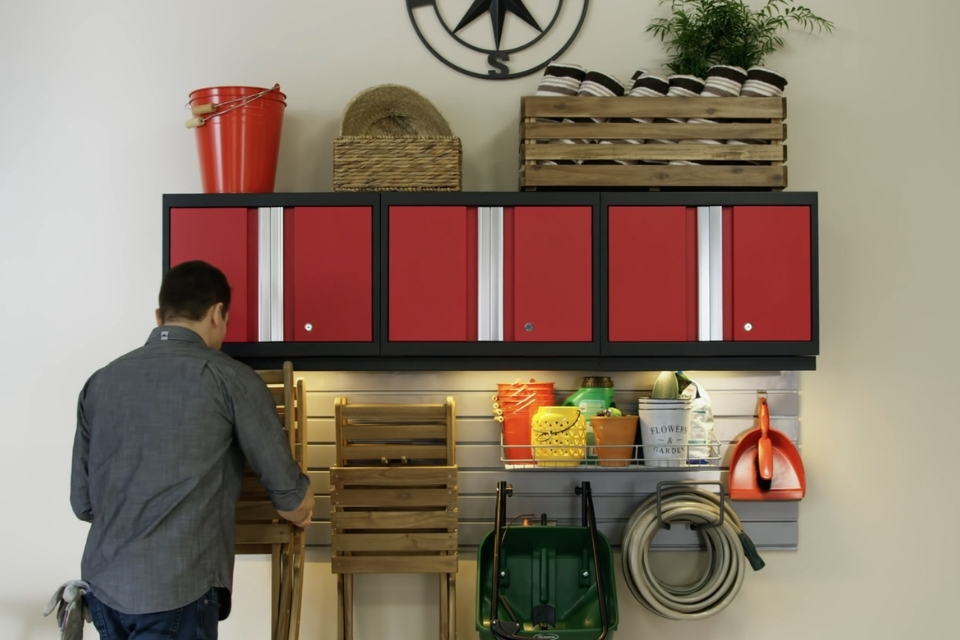
This article offers a comprehensive guide to tool box organization, providing practical tips and innovative organization ideas to help you arrange your tools efficiently.
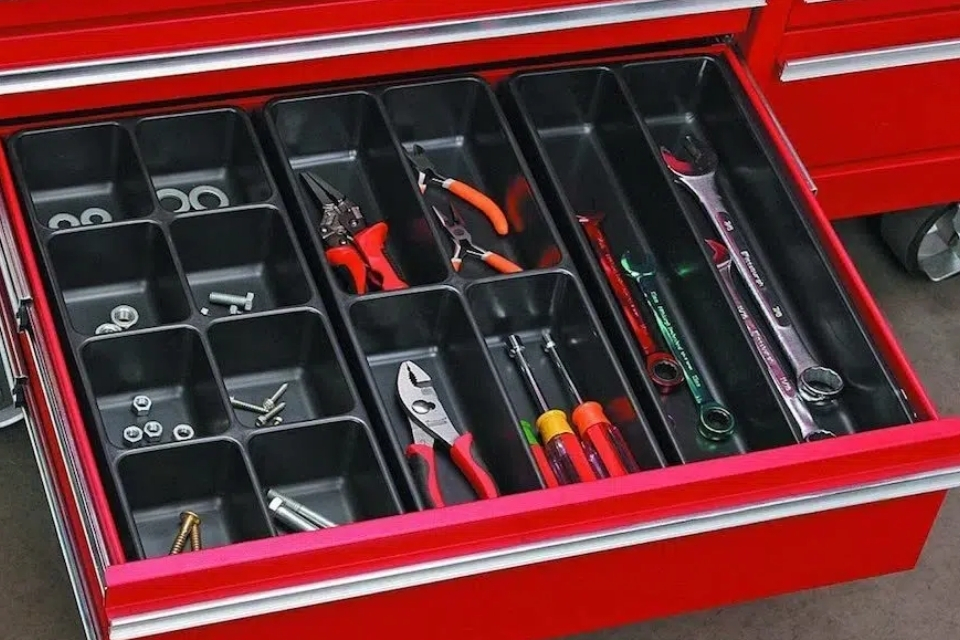
This article provides a comprehensive, step-by-step guide to installing a truck tool box, ensuring your tools are securely stored and easily accessible.
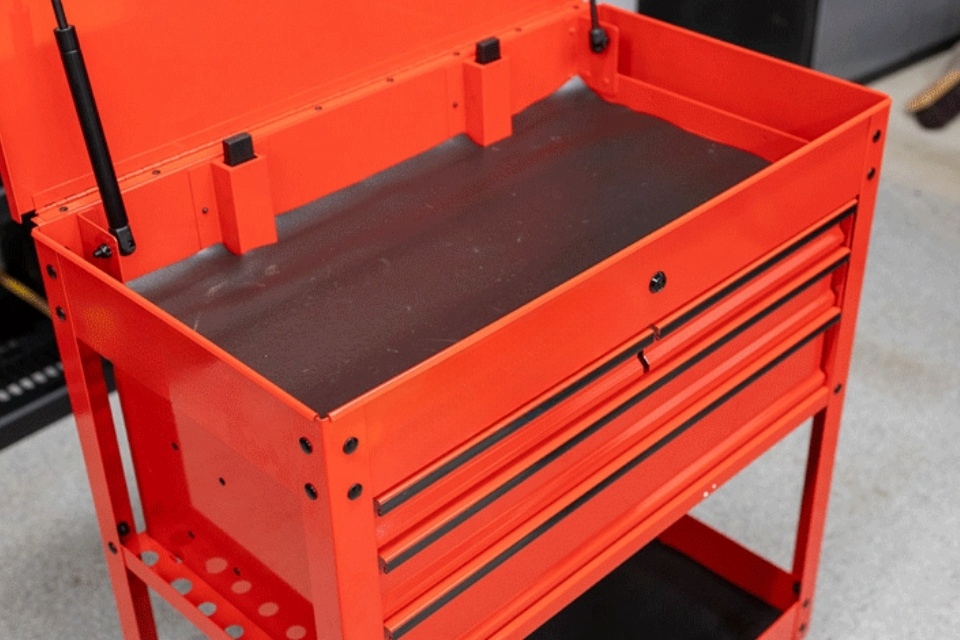
This comprehensive buying guide will walk you through everything you need to know when selecting a tool chest.
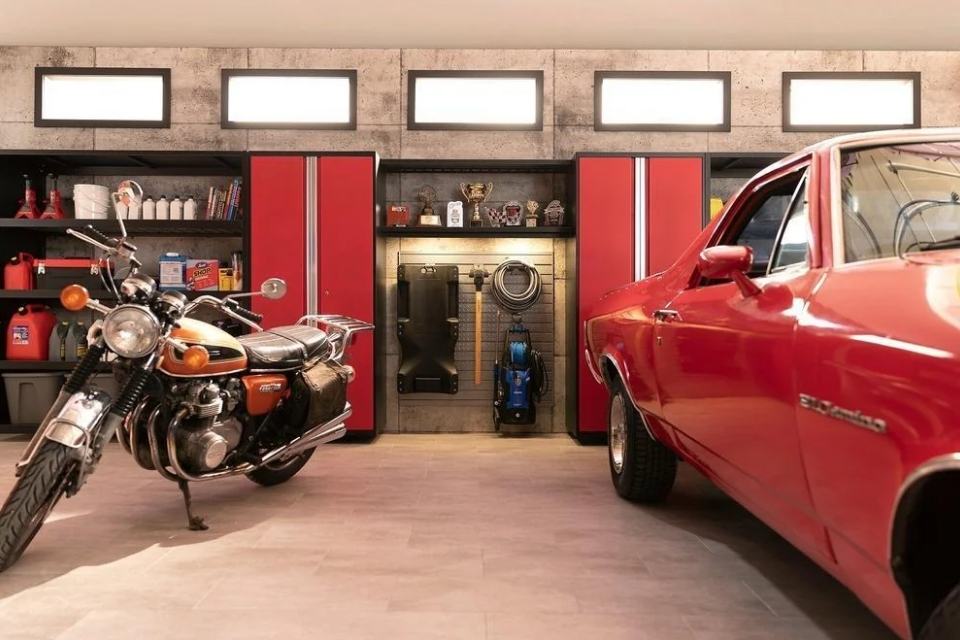
This article delves into the reasons why metal garage cabinets are a popular choice for homeowners and professionals alike, examining the durability, functionality, and aesthetic appeal of this cabinet material.
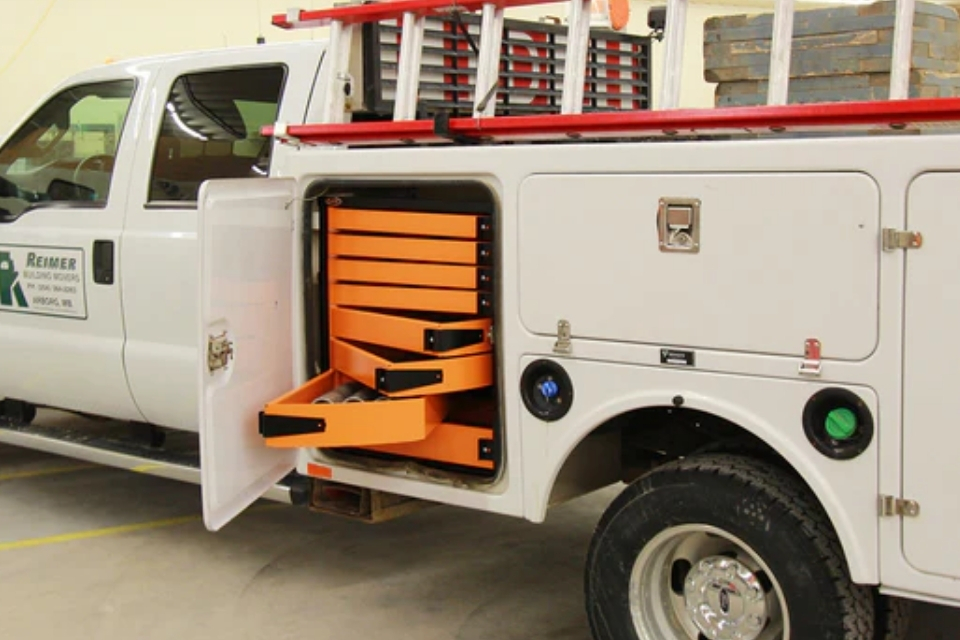
This article delves into the world of truck tool boxes, exploring the different types available and the crucial factors to consider when selecting the perfect one for your needs.

We are the leading factory for tool cabinets product in China with fast delivery, free custom services and fantastic services.
@ 2024 The Tool Cabinets. All right reserved.
Fill out the form below, and we will be in touch shortly.